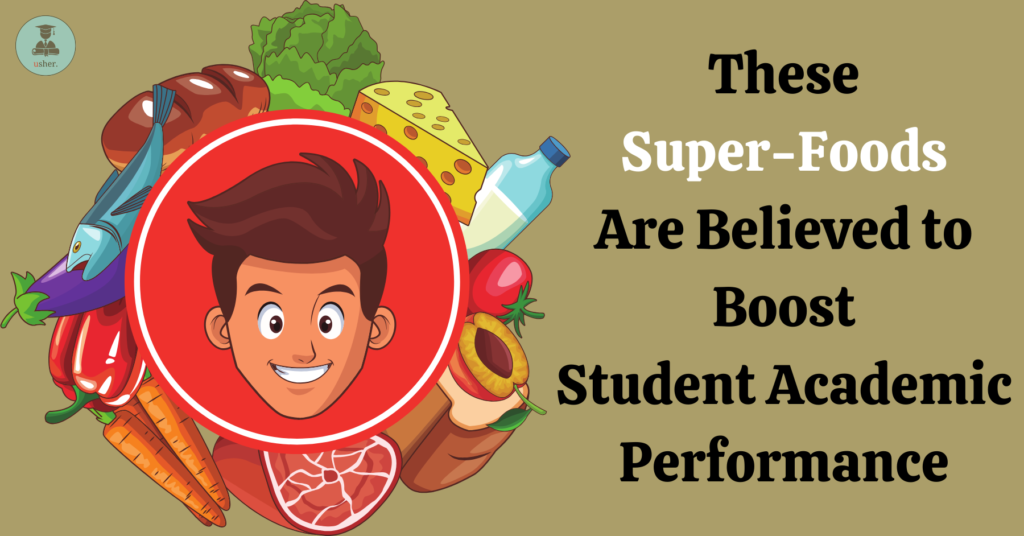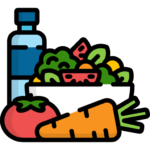Age:16years
Height- 5.7"
Body weight - 52 kgs
You must be wondering why I am sharing this.
These were my anthropometric measurements in 10th grade.
As my boards drew near, I found it difficult to focus on my studies and experienced a decline in my body weight. I was constantly stressed about my exams and couldn’t prioritize my health.
I was informed by my local nutritionist that these measurements were unhealthy for my height and age.
To maintain a healthy body, I needed to make dietary adjustments that would improve both my academic performance and my general well-being.
Since then eating a healthy and balanced diet has always been a priority for me. I realized how much of an impact food had on my overall well-being.
As a curious teenager, I began exploring different diets and their effects on energy levels, focus, and mood.
I noticed that when I fueled my body with nutrient-rich foods—lots of fruits, vegetables, lean proteins, and whole grains—I felt more energized, focused, and generally better both physically and mentally.
Student’s quest for always getting better in academic
How does a proper diet play a role in it?
In both their personal and academic lives, students are constantly striving for more. which is a very positive thing.
But, in the process, they often neglect their own self-care and well-being.
They seem to disregard the importance of eating a well-balanced diet in favor of fast food and supplements that are canned.
Pizzas, burgers and high-sugar calorinated drinks are student’s go-to choices due to their convenience and affordability. However, these choices lack the essential nutrients needed for optimal brain function and overall health, which can lead to future health problems.
Therefore, I urge students to prioritize their health and make conscious efforts to incorporate nutritious meals into their daily routines.
Role of Nutrition in Student Academic Performance
Student academic performance is greatly impacted by nutrition. Essential nutrients from a well-balanced diet boost overall cognitive function, improve focus, and nourish the brain.
Research indicates that adolescents who consume nutrient-dense meals demonstrate enhanced focus, enhanced memory, and greater academic success.
On the other hand, eating unhealthy foods or missing meals can result in poor nutrition, which can impair energy levels, shorten attention spans, and make it harder to acquire and remember new knowledge.
Students should prioritize eating healthily because it directly affects their academic performance and not simply their physical health.
P.S: If you make the decision to prioritize healthy eating after learning the value of nutrition and a balanced diet in your life, I will share some secret food items that will help you become the best student that everyone aspires to be and improve your performance in school and college. 🤐
Let's take an oath: 🫡
I will start consuming healthy and nutritious food and limit my intake of unhealthy and junk food.
By making conscious choices about what I eat, I can ensure that I am giving myself the best chance to succeed in my studies and reach my full potential.
Remember, a healthy mind starts with a healthy diet!
So now that you have decided to change your eating habits and are willing to enhance your academic performance, the obvious doubt you will get is, ‘What should I eat then?’
SUPER FOODS!
What are Super Foods?
Superfoods are nutrient-dense foods that provide a wide range of health benefits. They are packed with vitamins, minerals, antioxidants, and other essential nutrients that can boost your immune system, improve brain function, and promote overall well-being.
By incorporating these foods into your diet, you can nourish your body and support your academic success.
Here are a list of super-foods which are beneficial for students – note them down and include them in your diet:
The items have been divided into fruits, vegetables, and snacks. 😀
Fruits
Blueberries – Blueberries are rich in antioxidants and can improve memory and cognitive function. They also contain vitamins C and K, as well as fiber, which can support a healthy digestive system.
Avocado – Avocado is a creamy fruit that is not only delicious but also incredibly nutritious. It is rich in heart-healthy monounsaturated fats, which can help lower bad cholesterol levels and reduce the risk of heart disease. Avocados are also a great source of fiber, which aids in digestion and helps maintain a healthy weight.
Oranges – Oranges are a citrus fruit that are known for their high vitamin C content, which boosts the immune system and promotes healthy skin. They also contain fiber, potassium, and antioxidants that support heart healthn aid in digestiona and help reduce oxidative stress.
Oranges are a refreshing and hydrating snack option due to their high water content.
Pomegranate– Pomegranates are rich in antioxidants that effectively address various health problems, regulate fever, fights common cold and supports memory power.
Mangoes – Mangoes are a delicious tropical fruit that is not only sweet and refreshing but also packed with nutrients. They are high in vitamins A and C, which are important for a healthy immune system and skin health. Mangoes are also a good source of fiber and antioxidants, which aid in digestion, weight management, and protection against certain chronic diseases.
Whether enjoyed on their own or added to smoothies, salads, or salsas, mangoes are a tasty and nutritious addition.
Kiwis – Kiwis are a small fruit that pack a big nutritional punch. They are loaded with vitamin C, which is essential for a healthy immune system and collagen production. They high in fiber, which aids in digestion and helps maintain a healthy weight.
Whether eaten on their own or added to fruit salads or smoothies, kiwis are a delicious and nutritious choice.
Veggies
Dark leafy green vegetables – Dark leafy green vegetables, such as spinach and kale, are packed with essential nutrients like vitamins A, C, and K, as well as folate and iron. These nutrients are important for maintaining healthy bones, supporting immune function, and promoting proper blood clotting.
Broccoli – Broccoli is a cruciferous vegetable that is rich in vitamins, minerals, and antioxidants. It is known for its cancer-fighting properties and may also help support heart health and promote healthy digestion. As broccoli is low in calories and high in fiber, it is a great choice for weight management.
Beets – Beets are a nutritious vegetable that offers a variety of health benefits. They are rich in nitrates, which have been shown to improve athletic performance and lower blood pressure. Adding beets to your diet can be a tasty way to boost your overall health and well-being.
Bell Peppers – Bell peppers are a colorful and flavorful addition to any meal. They are high in vitamin C and antioxidants, which can help boost your immune system, support brain health and promote healthy skin.
Tomatoes – Tomatoes are a versatile and nutritious fruit that can be enjoyed in various dishes. They are rich in vitamins A and C, as well as antioxidants like lycopene, which has been linked to a reduced risk of certain cancers. Tomatoes are also low in calories and high in water content, making them a great choice for those looking to maintain or lose weight.
Fish and Eggs
Salmon – Salmon is an excellent source of omega-3 fatty acids, which are essential for brain health and can enhance cognitive function. It is packed with protein, vitamins D and B12, and minerals like selenium and potassium, which contribute to overall well-being.
Sardines – Sardines are another great source of omega-3 fatty acids, which are essential for heart health and brain function. Including sardines in your diet can provide these important nutrients and contribute to overall well-being.
They are also considered a sustainable seafood option, making them an environmentally friendly choice.
Eggs – Eggs are a versatile and nutrient-dense food that provide a good source of protein, vitamins, and minerals. They are particularly rich in choline, which is important for brain development and function. They also contain lutein and zeaxanthin, antioxidants that support eye health.

Snacks and Beverages
Dark Chocolate – Dark chocolate is a delicious treat that not only satisfies your sweet tooth but also offers several health benefits. It has been observed that dark chocolate improves brain function and enhances mood due to its content of flavonoids and stimulants like caffeine. Enjoying a small piece of dark chocolate can be a guilt-free indulgence with potential health advantages.
Pumpkin Seeds – Pumpkin seeds are a nutritious snack that is rich in essential minerals such as magnesium, zinc, and iron. These minerals play a crucial role in maintaining healthy bones, supporting the immune system, and promoting proper blood circulation.
Fun fact – Pumpkin seeds are a great snacking option for vegans as they are a good source of plant-based protein and healthy fats.
Walnuts – Walnuts are another great source of omega-3 fatty acids, which can improve brain health and cognitive function. They also contain antioxidants and vitamin E, which can help protect against oxidative stress and support a healthy immune system.
Fun fact– I have walnuts, which are rich in fibre and protien, as an evening snack ditching potato chips.
Almonds – Almonds are a nutritious and versatile snack option. They are rich in healthy fats, fiber, and protein, which can help you feel energized and improve memory. They also contain vitamins and minerals that support heart health and can help lower cholesterol levels.
Adding a handful of almonds to your daily diet can be a simple way to improve your overall nutrition.
Black Beans – Also known as black turtle beans are rich in fiber and protein, making them a great addition to any diet. They are also packed with antioxidants and can help regulate blood sugar levels. Adding black beans to your meals can promote digestive health and keep you feeling full for longer periods of time.
Soybeans – Soybeans are also rich in fiber, vitamins, and minerals, including iron and calcium. Additionally, they contain compounds called phytoestrogens, which may have health benefits such as reducing the risk of heart disease and certain types of cancer. Whether consumed as tofu, tempeh or edamame, soybeans are a versatile and nutritious food.
Soybeans are a great source of plant-based protein, making them an excellent choice for vegetarians and vegans.
Tofu – Tofu is a popular plant-based protein source that is made from soybeans. It is low in calories and high in protein, making it a great option for those looking to build or maintain muscle mass. Tofu is also a good source of iron and calcium, which are important for overall health and bone strength.
The interesting thing is that tofu can be prepared in various ways, making it a versatile ingredient in many dishes.
Flaxseeds – Flaxseeds are packed with fiber, omega-3 fatty acids, and lignans, which can help improve digestion, reduce inflammation, and support hormonal balance. Adding flaxseeds to your meals can not only enhance their taste but also provide potential health benefits such as promoting heart health and aiding in weight management.
Flaxseeds are a great option for those following a plant-based diet, as they offer a rich source of essential nutrients without any animal products.
Chia Seeds – Chia seeds are a superfood that provides numerous health benefits. They are packed with fiber, omega-3 fatty acids, and antioxidants, making them great for brain and heart health. Incorporating chia seeds into your meals or snacks can be an easy and delicious way to improve your overall nutrition.
Quinoa – Quinoa is a gluten-free grain that is high in protein and contains all nine essential amino acids, which help in providing sustained energy. This makes it a great option for vegetarians or those looking to increase their protein intake.
Green Tea – Green tea contains caffeine and L-theanine, which improve focus, attention and analytical function without the jittery effects of coffee.
In addition, green tea is also rich in antioxidants called catechins, which have been linked to various health benefits such as reducing the risk of heart disease and promoting weight loss. These antioxidants may also help protect against certain types of cancer and improve overall brain function.
Other Super Foods
Oats – Oats are a whole grain that is packed with nutrients. They are high in fiber, which helps to regulate blood sugar levels and provide sustained energy due to their complex carbohydrates.
Turmeric – Turmeric is a spice that has been used for centuries in traditional medicine. It contains a compound called curcumin, which has powerful anti-inflammatory and antioxidant properties. Studies have shown that curcumin may help reduce the risk of chronic diseases such as heart disease, cancer, and Alzheimer’s disease.
Cinnamon – Cinnamon is a spice that adds a warm and sweet flavor to dishes. It is known for its anti-inflammatory properties, which can help lower blood sugar levels and support brain health. Incorporating cinnamon into your diet can enhance the taste of your meals while providing potential health benefits.
Greek Yogurt – Greek yogurt is a versatile and nutritious food that is packed with protein, calcium, and probiotics. Probiotics are beneficial bacteria that can help improve gut health and boost the immune system.
Greek yogurt is lower in lactose compared to regular yogurt, making it a suitable option for those with lactose intolerance.
Coconut Oil – Coconut oil is a popular choice for cooking and baking due to its unique flavor and high smoke point. It contains medium-chain triglycerides (MCTs), which are easily digested and can provide a quick source of energy.
Incorporating coconut oil into your diet can be a healthy alternative to other cooking oils.
Including these superfoods in your diet can have a number of positive effects on your physical and mental health. Make a note of these foods and include them in your diet on a daily basis in the appropriate amounts. And watch as your academic achievement soars.
All the Best!










